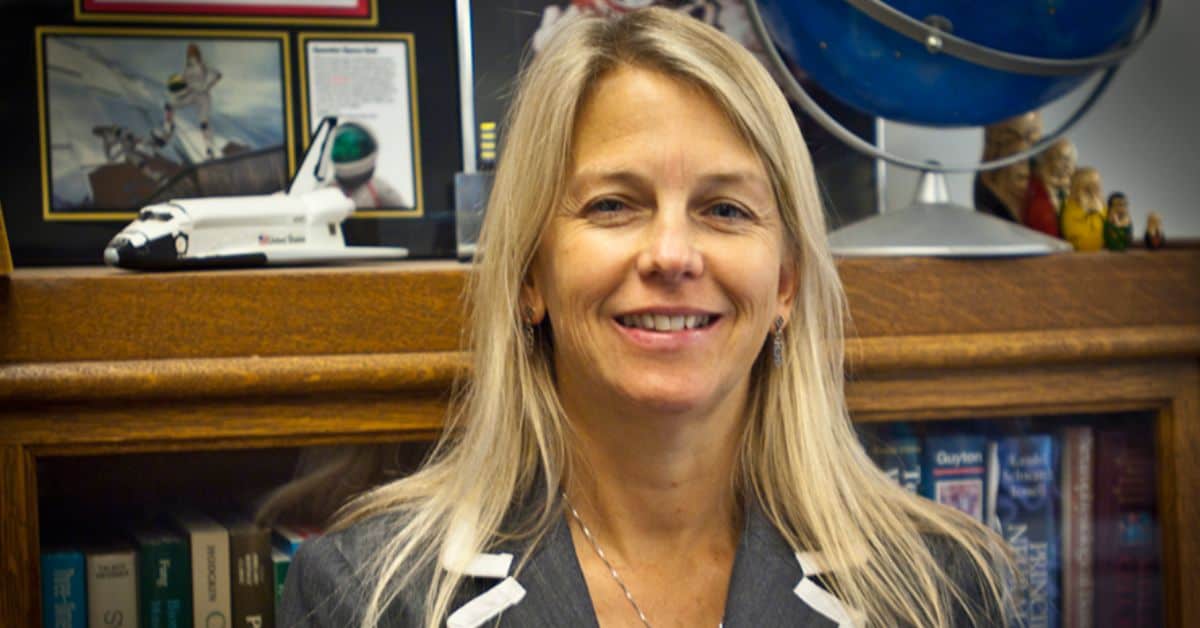Davos, Switzerland – The responsible artificial intelligence (AI) must enhance education, everyday life, and work, while blockchain protocols must be democratized in a decentralized society, Dava Newman, Director, Massachusetts Institute of Technology (MIT) Media Laboratory, told TRENDS during an exclusive interview.
The AI and blockchain are complementary systems and when they are used together responsibly, they have potential to enhance the user experience, she pointed out while discussing the mission and focus of the MIT Media Lab.
The Media Lab, she explained, works with companies and partners to anticipate future concerns and designs and develops technology to address these issues. The lab has identified five areas of focus: Future Worlds, Life with AI, Decentralized Society, Cultivating Creativity, and Connected Mind and Body, all aimed at enhancing life, human performance, and wellness.
During the interview, Newman addressed the skepticism surrounding AI and blockchain technology, explaining that the lab focuses on using these technologies responsibly and ethically, with the human experience at the center of the design process.
Excerpts:
Please give an overview of your view of the MIT Media Lab?
Our mission is to design, develop, and transform advanced technologies and experiences with a focus on socially responsible impact. We are futurists who imagine 10 years in advance and do not do anything incremental. We think about what’s coming and work with companies and partners to see what they may be concerned about. We did a lot of stakeholder forecasting and came up with five areas that we are now communicating to the world. The first is Future Worlds, which is about climate sustainability. We have expertise in oceans, land, the Internet of Things, and space. We want to design and come up with actions for the future we want to live in. The second is Life with AI, which is always designing for people. How can we enhance people’s lives through AI? All of our research focuses on this question, from education to responsible AI for the workplace. The third is a Decentralized Society, which focuses on Web3 and blockchain. We ask great questions about privatization and having control over one’s own data. How do we democratize it? The fourth area is Cultivating Creativity, which focuses on the revolution in creativity. We want to mobilize creativity at the Media Lab’s maker space because people have not been creative for the past two or three years, being isolated on their laptops and Zoom. We want to bring people together to work in person, contribute their ideas, and make something beautiful out of them. The fifth area is Connected Mind and Body, which focuses on health and wellness. We want to bring our digital tools to bear on people’s wellness and health, all the way through the physical embodiment of human version to point on hybrid, hybrid bionic people. It’s all about enhancing life, enhancing human performance, and wellness.
There is a lot of skepticism about AI and blockchain. How would you address that?
It’s a valid concern. When it comes to AI and the human experience, let’s put the human at the center of the loop. The AI should be designed very intentionally with responsible, ethical AI. Are we enhancing education, everyday life, and work? If the answer is no, we shouldn’t be doing it. If we are lifting people up and giving them tools, then we are using AI responsibly. We recently published a paper on generative AI and how it can help spark creativity. It’s a tool for designers, and we need to use it responsibly. Blockchain, in itself, is a protocol that is very secure. If there’s privatization, we need to ask what happens in a decentralized society. How do we democratize it? We see blockchain and Web3 as protocols that are going to be very useful if we get it right and ask the right questions. We look at AI and blockchain as complementary systems that work together to enhance the user experience, with the person always at the center of the design process.
What major developments do you expect in the next two years in various areas?
One major trend will be a renewed focus on space exploration, particularly in the search for extraterrestrial life, which could potentially revolutionize our understanding of ourselves and the universe. Additionally, addressing the dual crisis of energy and climate will require collective action and a shift in human behavior. I am optimistic that we can reduce emissions and preserve biodiversity, but it will require informed education and cooperation on a global scale.
What were your major takeaways from your interactions at DAVOS this year?
It was a fantastic experience for me, being my first time attending. The speakers were great, and I particularly enjoyed the small, intimate sessions where we had a lot of discussion and panels. I feel like I made a lot of new connections, and the global aspect of the meeting was the best part – meeting people from all over the world and listening to their perspectives. Going forward, I think partnerships and collaboration will be crucial as we tackle the important challenges facing humanity. DAVOS was a great place to start these discussions, but the real work needs to happen as we leave and work together to make a difference.







